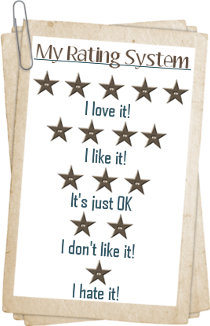Q: You used to work for a New York City law enforcement agency. How much of Zephyr’s adventures in Hotel No Tell come from your actual experience?
A: I worked for a watchdog group that investigates crime and corruption in the public school system. None of the cases that the fictional SIC handles is identical to any real one I worked on. But, certainly, I drew on the hubris of our perps and the astounding ability of people to deny to themselves that they’re committing a crime. For instance, I make mention of a school principal taking kickbacks, which was the theme of more than a few of our cases. I also borrowed from the enormous and enormously entertaining personalities of my former colleagues. One thing that is completely true: most of the investigators were named Tommy.
Q: Zephyr’s investigative skills could use a little honing. Is this the right career for her?
A: She’s definitely not the smooth, gun-slinging, clear-thinking cop of so much popular fiction. She fails to catch last names, she can’t describe what people look like, she’s a little rash in a lot of her actions. But she’s nosy, genuinely curious, and innately caring. She gets people to talk to her. I wanted to capture the reality of people having unusual talents, not uniform ones, of showing how people can have skills that can’t be described on a resume. She’s learning on the job and I love that about her. She’s who a lot of us would be if we were thrown into her position.
Q: Zephyr is adamant about her decision not to have children, so much so that, at the beginning of the book, she and Gregory have broken up over it. You have two kids; are you worried what they’ll read into this?
A: First of all, I hope they’ll remember that I’m not Zephyr. Fiction is many things for a writer, including an outlet for exploring paths not taken. I felt very strongly that Zephyr not go the mommy route. I’m living it; I don’t want to read about it, let alone write about it. (That said, I shoveled some of my darkest feelings onto Lucy, and doubled it by saddling her with twins.) So I started there – my lack of interest in making her a mother – and then went further. Why not have her struggle to make peace with her child-free status be her personal challenge, as the quest for professional identity was in Super? Let’s examine the societal assumption that we’re all supposed to have kids, when the truth is that parenthood is tough, so tough that at some point, all parents wonder why they took it on. Without children there would be, as Zephyr says, more time, more money, less stress, more sleep, more growth of the mind. But by the end of the book I was more convinced than ever that I had made the right decision for myself and that Zephyr had made the right one for herself.
Q: Which is quite an accomplishment, given that Zephyr is often plagued by a lack of resolution to her problems.
A: One of Zephyr’s stumbling blocks is her belief that you need to tie up loose ends in order to move on to the next stage of life. By the end of Hotel, Zephyr is accepting the discomfiting fact that you can’t wait for certain unknowns to resolve – both in the criminal case she has mostly solved, and in her personal struggle with potential parenthood – in order to move forward. Wait forever and you’ll never grow up.
Q: But wouldn’t you say the book itself has an almost comical number of closures in the final chapter?
A: It’s true – in the plot itself, I love not only to tie up loose ends but to provide delicious and, I hope, funny and satisfying and surprising connections – perhaps as an antidote to those pesky loose ends. E.M. Forster’s directive [“only connect”] can be applied to storytelling as much as to real life.
Q: Right after Super in the City was published, you, like Lucy, were unwillingly transplanted to the suburbs. How has it been living away from the city while writing so intimately about it?
A: When we first moved away, I complained so much that a friend of mine who’s a lit professor rolled her eyes and promised to list me on her syllabus for Writers in Exile, right next to Salman Rushdie. Friends had lofty hopes for my situation, suggesting that it could be some deep new angle from which to view my city. It hasn’t been. What it has been is a great way to keep living there in my head, even as I live somewhere else. In fact, continuing to write about the city may contribute to my current identity problem: I still haven’t managed to say “I live in the Hudson Valley.” I say, “We’re living in the Hudson Valley, but we still own my childhood apartment in the Village.” It’s juvenile, I know.
Q:How did you come up with the idea of an egg donor scam?
A: Close friends were going through the process of selecting a donor and asked my opinion of the three finalists. It’s not like I didn’t know about egg donation, but watching people I loved go through the process -- and getting to have a small voice in selecting the seeds of my future niece or nephew -- really set my mind racing. I remembered seeing ads in my college newspaper recruiting egg donors, and I’ve always wondered why society treats it as a much bigger deal to give eggs than sperm.
Q:Other than the invasive process (and because of that, the money), why is it a bigger deal?
A: I don’t think it is. I think it’s all a huge deal. In fact, I wonder whether the boys I knew when I was nineteen who were donating to get some beer money now have any regrets. It has repercussions: imagine learning that your husband donated when he was younger, that your children have biological half-siblings you don’t know about.
Q: Zephyr’s newest friend, Macy St. John, is a lovable but cursed wedding planner whose company is called No Divas. Fess up: were you a bridal diva?
A: I can safely say I was not. I err in the other direction, which has caused my husband to declare me so low maintenance that I’m high maintenance. I came up with the idea for a business for no-frills clients after our caterer tried to schedule a two-hour meeting about our wedding cake. I declined and told him to make it white and make it taste good. A similarly non-diva friend who was planning her wedding at the same time came up with the name of the imaginary company that, years later, would find its way into this book.
Q: But you didn’t wear $13 sandals from Payless on your wedding day, the way Macy’s client does.
A: Yes, in fact. I did.
Q: Why a sequel?
A: I considered doing an entirely unrelated book, but suspected that any protagonist I created would be Zephyr again, with a different name. I was preoccupied with my recent exodus from the city and new status as mother of two. I inflicted both these states onto Zephyr’s good friend Lucy, which then freed me up to write about Zephyr and the life I was fantasizing about – still in the city and childless. It was clear to me that, if these were my preoccupations, it would be natural to keep writing about Zephyr. That said, it's definitely a stand-alone book, too -- you don't have to have read Super to enjoy Hotel.
Q: Will this be a trilogy?
A: I doubt I’m done with Zephyr, but I plan to take a break from her and first write something completely different. I’m toying with historical fiction, something I swore I wouldn’t touch with a ten-foot cursor.
About the author ~
A former Books/Poetry editor at Time Out New York, Daphne's reviews, profiles, and articles have been published in The Washington Post, The New York Times, Newsday, The Forward, New York Magazine, Oxygen, Allure, and Self, for which she used to write an ethics column.
Super in the City, her debut novel, is available in paperback and Kindle editions, and still getting rave reviews! Click on the right side of the screen for more information.
Daphne also co-edited, with Deborah Siegel, the acclaimed anthology Only Child: Writers on the Singular Joys and Solitary Sorrows of Growing Up Solo. Available in paperback and Kindle editions.
A third-generation West Villager, Daphne lives in the Hudson Valley with her husband and two children.
Visit Daphne's website
Like Daphne on Facebook
Follow Daphne on Twitter
Be her friend on Good Reads
Email ~ DaphneUviller AT gmail DOT com
The latest book ~
Hotel No Tell features the return of Super in the City's beloved Zephyr Zuckerman. On the verge of 31, Zephyr is now a junior investigator with New York City’s Special Investigations Commission (SIC). She’s undercover as a concierge at the Greenwich Village Hotel, trying – and failing – to track down a missing hundred grand. Her detective boyfriend has moved out because of their disagreement about reproducing (he wants kids, Zephyr doesn’t), and she’s left with her Holland Lop bunny named after a famous atheist, an old friend who’s married and miserable in suburban motherhood, and one new friend who’s a wedding planner in dire need of an exorcist.
It soon becomes clear that the trouble at the hotel goes much, much deeper than a little old-fashioned laundering. Before Zephyr can master the reservation system, she is yanking at the threads of a multi-million dollar egg donation scandal and re-examining her own motives for opting out of parenthood.
It soon becomes clear that the trouble at the hotel goes much, much deeper than a little old-fashioned laundering. Before Zephyr can master the reservation system, she is yanking at the threads of a multi-million dollar egg donation scandal and re-examining her own motives for opting out of parenthood.
On sale NOW
Her other books ~
Thanks to the publicist, I have two (2) copies of Hotel No Tell: A Novel to give away.
to give away.
GIVEAWAY Rules for entering:
* This contest is open to residents of USA only.
* Please complete the form below - do not leave information in the comments - it will not count.
* One entry per person. Duplicate entries will be deleted.
* The contest will end on May 20th at 11:59PM EST; 2 winners will be selected and contacted thereafter.
* Once the winners are contacted, they will have 48 hours to respond to my email or another winner will be chosen (make sure to check your spam filters!).
* Book will be shipped directly from the publisher.



























